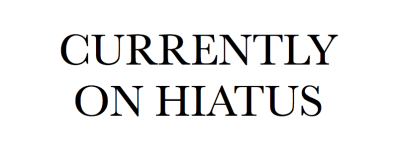Poet’s Statement: “Solastalgia” is a term coined to describe the experience of mourning environmental loss, of grieving your home while you still inhabit it.¹ An experience quickly becoming common to the majority of humans presently living — people of all languages, cultures, and beliefs.
This poem attempts to grapple honestly with what it means to remember (and to remember poetically) in an era where all that we claim to write in defense of is in danger of disappearing. An era where concrete, human actions are required beyond art, to avert or at least mitigate an ecological collapse that could easily put an end to most of what inspires us to poetry, and to countless lives (human and otherwise) beyond that. As such, it is at times less than poetic. But it is also a call towards a new sort of poetry.²
Solastalgia
(“I want you to act as if your house is on fire”)
Somewhere, there is a poem containing the line “pursue all things bright and impossible.”
Somewhere, there is a poem where every childhood memory — the flash of fireflies you trapped in jars, the sharp sting of the ocean’s touch, the tremble in your grandma’s hands as she reached across the sickbed not for you, but for her bible’s clutch — is returned to you, inscribed in salt.
Somewhere there’s a poem where every line of it sparks like the first time someone noticed you, like the wet-slick shell you molted out of then left crushed
and glistening
in the sun.
Somewhere there’s a poem where every word recalls to you what you’ve most loved and forgotten. What you’ve agreed never to remember, and now cry out as every syllable of it returns and sears its name across your skin.
This is not that poem.
There are words that burn, and words that balm, and today I have neither.
Only these stark sentences.
Over the past 40 years, over half of the world’s vertebrate wildlife has disappeared.
That’s half of every creature with a spine, that’s for every animal that can clutch its children to its chest and wail, for every furred scaled feathered thing — you flip a coin.
Over just the past 3 decades, 75% of Germany’s insects have vanished.
That’s goodbye to your childhood fireflies, that’s starving birds, that’s the visceral impact of your father suddenly realizing that just 20 years ago he had to wipe bugs off his windshield layered on so thick, you had to stop after a few miles, and now nothing. The glass is clear for the whole length of the U.S.
The oceans empty themselves faster than they rise, and grow with their new hunger. Our cities pillared salt, a scabrous tissue soon to be washed cleaner than our stained-glass cathedrals, more beautiful than our mothers’ faded photographs of who they were before.
A wall in Belgium anounces “every blank canvas is a white flag.” Every dumb mouth is capitulation. And where I want to speak of love, of what stands to be lost, of what already has been lost — the words catch in my throat. I can’t.
Solastalgia — solace, and desolation. The word for how it feels to know the one place you can turn from your oppression, from the struggle just to make it through the day with chronic illness, fear for loved ones, institutionalized hate… is disappearing. The word for how it feels to know this stolen land we stand on could soon be no one’s home.
Citizens of no country. Protectors of no sacred loam.
I want to write of love, but cannot. I want to write of memory but its every detail burns through me until the record is consumed.
Greta Thunberg writes: “Adults keep saying,
‘We owe it to the young … to give them hope.’
But I don’t want your hope.
I want you to panic.
I want you to feel the fear I feel everyday.
And then I want you to act…
I want you to act as if your house is on fire.
because it is.”

Landscape by 19th century Japanese artist Utagawa Hiroshige
Jacob Hawkes lives in Ithaca, NY. And sometimes spends a little too much time remembering.



I love that word… I’m going to use that!
LikeLike